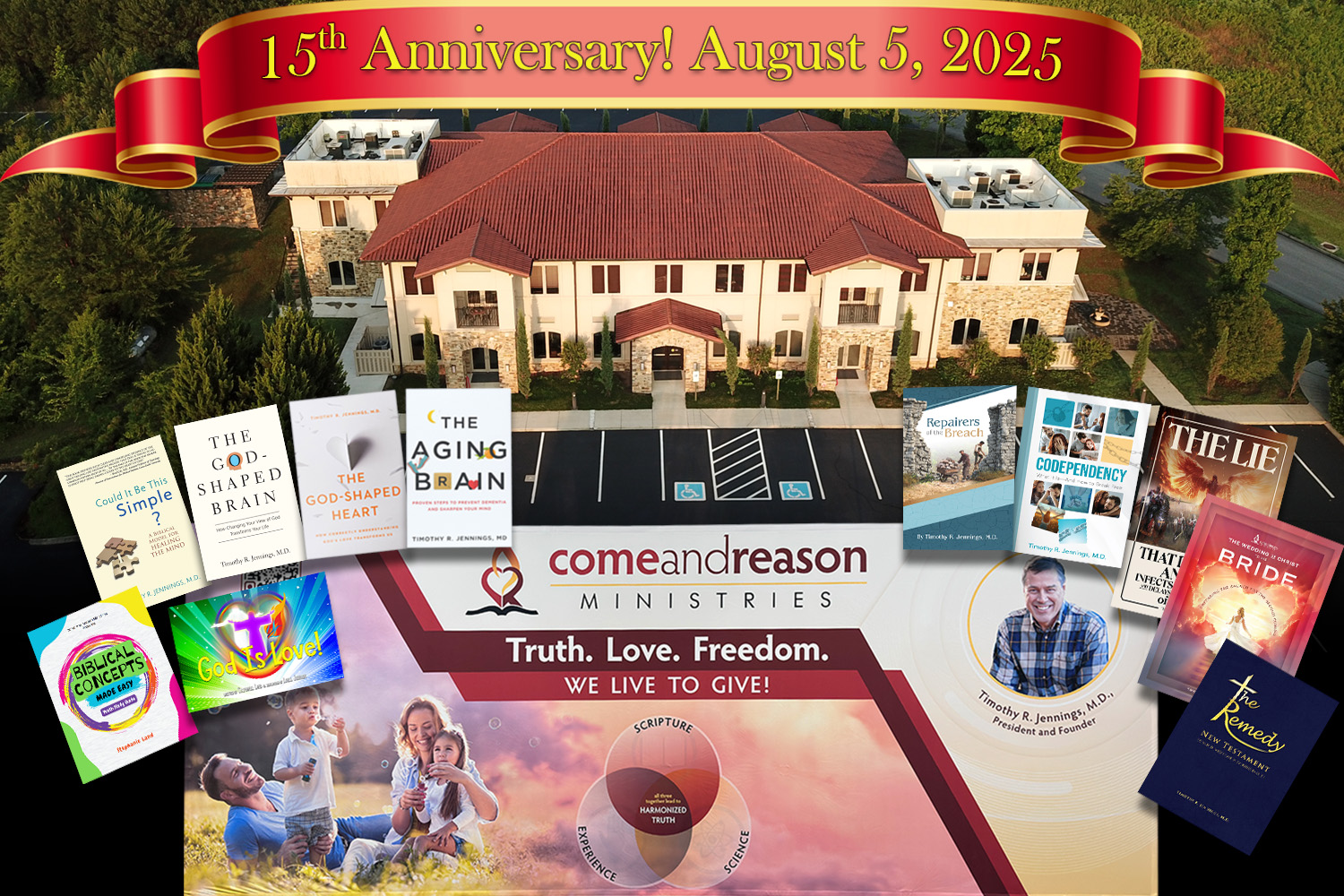We all know that people who reject Christ, who refuse the working of the Holy Spirit in their hearts, will be opposed to God and His kingdom of love. We understand, and even expect, that those who reject truth, reject love, reject righteousness will work against God and His kingdom of love.
We also understand that there are those who claim to be on God’s team but who are not – people who claim to be Christian but have not been reborn, those who have accepted a false view of God and, despite their claim to be on Jesus’ side, actually work against Him. Jesus described these sad, lost souls to His disciples:
Not everyone who says to me, “Lord, Lord,” will enter the kingdom of heaven, but only he who does the will of my Father who is in heaven. Many will say to me on that day, “Lord, Lord, did we not prophesy in your name, and in your name drive out demons and perform many miracles?” Then I will tell them plainly, “I never knew you. Away from me, you evildoers!” (Matthew 7:21–23 NIV84).
Yes – we know that those who have rejected Jesus and those who have not been reborn are working against God’s kingdom. But what many may not realize is that it is possible for those who are saved, who have accepted Jesus, who have their hearts filled with love for God, and who are motivated to share Him with others, to, in the very act of sharing their love for God, work against Him and hinder what Jesus is trying to accomplish.
God designed us to experience powerful feelings, but in God’s design, our feelings are to be governed by our good judgment. We are to choose what we understand is right and healthy, in harmony with God’s will, design, and purposes, regardless of how we feel in the moment. Our feelings are not to overrule our judgment – what we know is right. When we allow our feelings to take charge, we are at great risk of acting outside God’s will. And the danger of our feelings leading us to work against God arises not only from such emotions as anger, hurt, resentment, or lust, but it can also arise from feelings of joy, love, and the desire to praise and uplift Jesus.
We find an example of this recorded in the book of Mark:
Jesus sent him away at once with a strong warning: “See that you don’t tell this to anyone. But go, show yourself to the priest and offer the sacrifices that Moses commanded for your cleansing, as a testimony to them.” Instead he went out and began to talk freely, spreading the news. As a result, Jesus could no longer enter a town openly but stayed outside in lonely places (1:43–45 NIV84).
This man had a saving encounter with Jesus. He was not just healed of a skin disease, but he was also saved from sin. Leprosy was viewed as a curse from God and punishment for sin. To be a leper in Christ’s day was to be a sinner outside of God’s grace, corrupt beyond salvation, rejected and accursed by God and shunned and cast out by society. In healing the leper, Jesus not only cured the physical malady, but He also transformed the heart of the leper, who responded with love and devotion to Christ.
But Jesus gave him specific instructions to keep quiet about his healing, to go to the priests and offer the proper sacrifices and get their verdict that he was cured so he could be restored to his family and community. Jesus understood the prejudices of the religious leaders and didn’t want this man to be denied restoration to the community because of their biases.
But it wasn’t only for this man’s benefit that Jesus told him to be silent about his healing; it was for Jesus’ larger mission to the people that the man’s silence was necessary. Yet the new follower of Christ, filled with love, joy, and happiness, his heart overflowing with a desire to uplift Christ, allowed his feelings to overrule what he knew Jesus had instructed him to do – and he ended up interfering with Jesus’ mission. Instead of doing what Christ had directed him to do, he followed his feelings and put obstacles in the way of Christ’s larger purpose.
One Bible commentary describes it this way:
Jesus charged the man not to make known the work that had been wrought, but straightway to present himself with an offering at the temple. Such an offering could not be accepted until the priests had made examination and pronounced the man wholly free from the disease. However unwilling they might be to perform this service, they could not evade an examination and decision of the case.
The words of Scripture show with what urgency Christ enjoined upon the man the necessity of silence and prompt action. … Had the priests known the facts concerning the healing of the leper, their hatred of Christ might have led them to render a dishonest sentence. Jesus desired the man to present himself at the temple before any rumors concerning the miracle had reached them. Thus an impartial decision could be secured, and the restored leper would be permitted to unite once more with his family and friends.
There were other objects which Christ had in view in enjoining silence on the man. The Saviour knew that His enemies were ever seeking to limit His work, and to turn the people from Him. He knew that if the healing of the leper were noised abroad, other sufferers from this terrible disease would crowd about Him, and the cry would be raised that the people would be contaminated by contact with them. Many of the lepers would not so use the gift of health as to make it a blessing to themselves or to others. And by drawing the lepers about Him, He would give occasion for the charge that He was breaking down the restrictions of the ritual law. Thus His work in preaching the gospel would be hindered.
The event justified Christ’s warning. A multitude of people had witnessed the healing of the leper, and they were eager to learn of the priests’ decision. When the man returned to his friends, there was great excitement. Notwithstanding the caution of Jesus, the man made no further effort to conceal the fact of his cure. It would indeed have been impossible to conceal it, but the leper published the matter abroad. Conceiving that it was only the modesty of Jesus which laid this restriction upon him, he went about proclaiming the power of this Great Healer. He did not understand that every such manifestation made the priests and elders more determined to destroy Jesus. The restored man felt that the boon of health was very precious. He rejoiced in the vigor of manhood, and in his restoration to his family and society, and felt it impossible to refrain from giving glory to the Physician who had made him whole. But his act in blazing abroad the matter resulted in hindering the Saviour’s work. It caused the people to flock to Him in such multitudes that He was forced for a time to cease His labors (The Desire of Ages, p. 264, emphasis mine).
The great error of this healed man was that he allowed his own feelings of love, joy, devotion, and affection to overrule what he understood Christ wanted him to do. He failed to actually follow where Jesus was leading. His feelings led him to draw false conclusions about why Jesus told him to keep silent. He didn’t have the same understanding or perspective of reality as Christ did and, therefore, he made false conclusions based upon His love and godly desire to uplift Jesus.
This healed man was not Jesus’ enemy. The man was not motivated by selfishness. The man was not a rejector of Jesus or seeking to harm God’s cause. His love and desire to uplift Jesus were good and righteous desires and emotions – nothing wrong with feeling the way he did. But because he allowed his emotions of love and appreciation for Christ to control him, he didn’t follow what Jesus had specifically and clearly instructed him to do; thus, his actions were not the actions of love and loyalty, and he ultimately hindered the work of God.
Is there a lesson for us today in this story? Could we be at risk of allowing powerful feelings of various kinds to lead us to take actions that we believe are uplifting God, or promoting God’s cause, but are in opposition to some direction, instruction, guidance, principle, or method of God that He has revealed to us in His Word?
I empathize greatly with the healed leper. I think I would have had a very hard time keeping quiet had I been in his shoes. But then I think of Jesus’ invitation to become His friend:
You are my friends if you do what I command. I no longer call you servants, because a servant does not know his master’s business. Instead, I have called you friends, for everything that I learned from my Father I have made known to you (John 15:14, 15 NIV84, emphasis mine).
This is my goal! Having accepted Jesus’ invitation of friendship, I want to keep growing in godliness, to mature beyond being a mere newborn child of God who is saved by grace and to develop into a real understanding friend of Jesus who knows His methods, principles, and design laws for life; a friend who comprehends what He is seeking to accomplish so that, regardless of my feelings, I will consistently do as He has instructed. I not only want to feel love for Jesus, I want to love Him as one of His trusted and loyal friends – to love Him with my actions, which means doing as He has instructed.
If you haven’t already done so, will you join me and accept Jesus’ invitation to be His understanding friend? Will you seek to keep growing in godliness, to mature beyond the joy of a newborn babe saved by grace into an understanding friend of Jesus, one who knows His methods, principles, and design laws for life, a person who comprehends what God is seeking to accomplish and regardless of feelings, choose to do as Jesus directs?









 using your credit or debit card (no PayPal account needed, unless you want to set up a monthly, recurring payment).
using your credit or debit card (no PayPal account needed, unless you want to set up a monthly, recurring payment). instead?
instead?